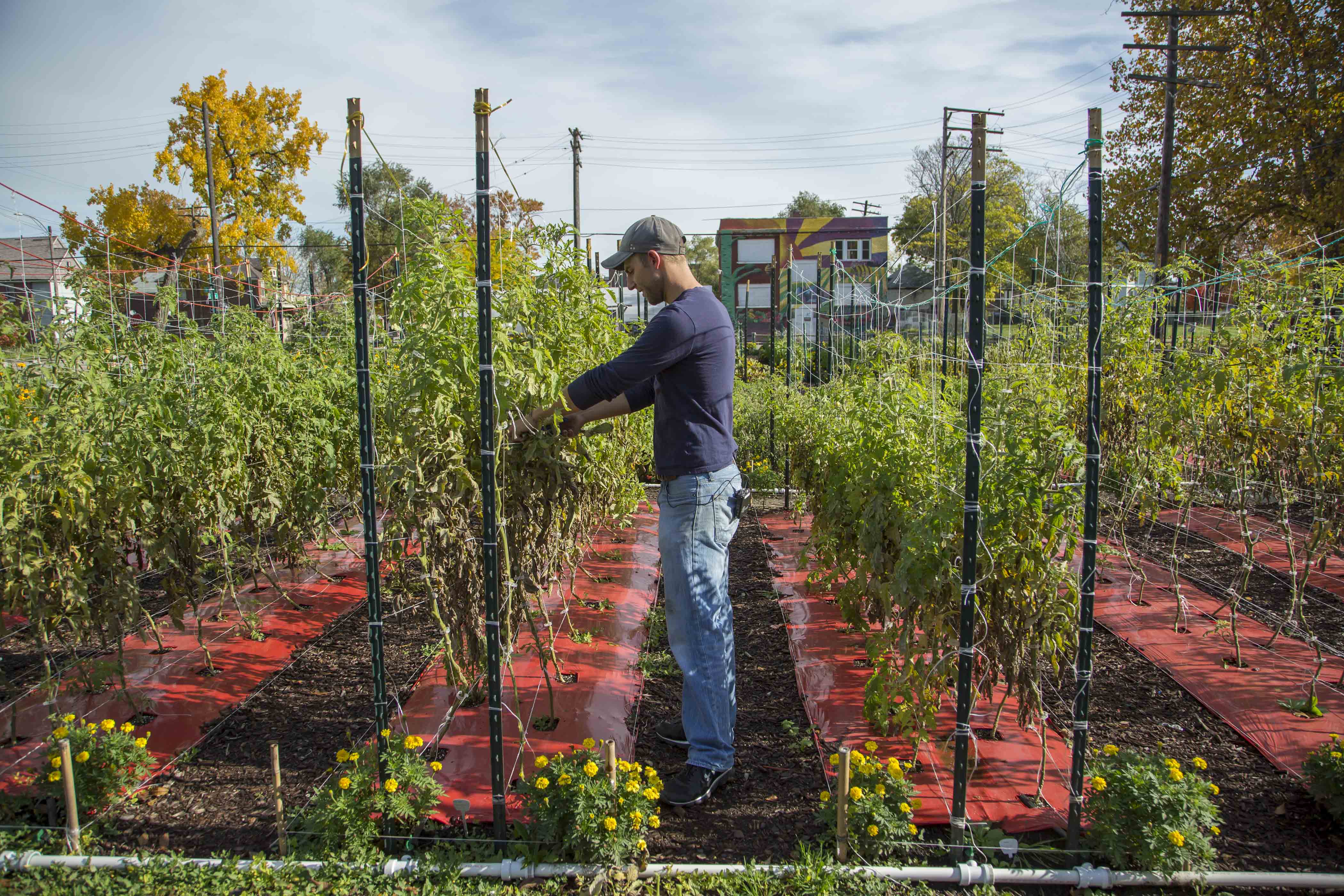WRITER | MATT DAVIDSON
The Next Generation of Farming
As climate change impacts farmers’ ability to grow crops reliably, younger generations may lose interest in taking over the family farm, and farmland is developed for housing. But there are many looking for alternative farming options, and one concept that is catching on is urban farming.
Urban farming comes in many forms, from large indoor/ outdoor urban growing operations to smaller neighborhood plots. Big or small, they ’re all about helping the communities in which they are located learn about and source fresh produce locally.
One such venture is the Flint Unity Farming Project. The brainchild of Delmond Marshall through the Marshall Family Foundation, the goal of this project is to educate Flint-area children in how to grow their own produce. The side benefit is helping to offset the effects of lead exposure. A collegiate-like curriculum helps to inspire these kids to focus on wellness and education rather than on drugs and violence.
Kids from the community work at the FUFP city garden property and gain experience in gardening and landscaping, giving them marketable skills and helping them put food on the table.
The Michigan Urban Farming Initiative is another effort at urban farming and has been working to revitalize a neighborhood in Detroit’s North End by creating an area supporting sustainable agriculture within the city. These areas have been dubbed Agrihoods.
MUFI is an all-volunteer run initiative whose mission is to “use urban agriculture as a platform to promote education, sustainability, and community in an effort to empower urban communities, solve many social problems facing Detroit, and potentially develop a broader model for redevelopment for other urban communities.”
They currently operate a two-acre farm that produces 300 different types of vegetables. These are then distributed to local residents, churches, and food pantries at no cost. By using rainwater to aid irrigation, their goal is to be independent of the city water system, and by using waste products for compost, they hope to have a very small carbon footprint. Since inception, MUFI has provided over 50,000 pounds of produce to those in the community.
Not all urban farming efforts are outdoors, however. There is a movement known as vertical farming or indoor agriculture, where produce is grown indoors in a controlled environment. Farmers can grow crops without having to worry about severe weather, pests, or the seasonality of a traditional farm.
Vertical farming carries numerous benefits. When properly designed, there is hardly any loss of water or nutrients as they simply flow on to the next plant in line. It is a way of maximizing available space within a smaller footprint, producing upwards of 350 times as many crops per acre as a traditional set-up. Humidity and ultraviolet light are controlled, enabling a year-round growing season. Numerous sensors along the tubes where crops are grown monitor plant health and the levels of nutrients and moisture in the growing solution, self-adjusting as needed to ensure optimum return on invested resources.
Two such farms are Green Spirit Farms in New Buffalo and Artesian Farms in Detroit. Both sites are located in old factory/warehouse buildings that have been repurposed. These buildings offer square footage vertically and produce is planted on each level of the buildings. They grow pesticide-free, non-GMO produce to sell in area markets.
In northwest Detroit, another project is under way that includes the removal of structures that cannot be saved, the renovation of more than 100 existing homes, and a large, 200-parcel urban farm, operated by Green Collar Foods. Their concept is to provide “owners” (local residents) with the tools and information needed to duplicate these “hubs” in other urban areas.
The goal with all of these farms — and others like them — is not to hurt traditional farmers. Rather, their goal is to expand the availability of high-quality, locally grown produce in a more controlled setting while creating jobs and invigorating areas that are otherwise a blight on their community.
MIUFI.Org l GreenCollarFoods.com l GreenSpiritFarms.com l ArtisianFarms.com
Flint Unity Farming Project can be found on Facebook.











